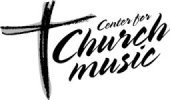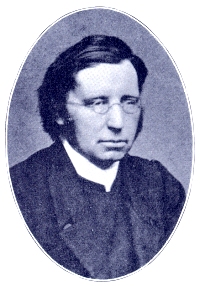Center For Church Music, Songs & Hymns

Browse Hymns:
Browse by:
We Invite You To Sing
To sing with us, 1) Click on the music thumbnail icon to view the sheet music (you don't have to read music!), and 2) Engage the audio file by clicking on the Real audio or Mp3 file.
Find Songs And Hymns
John Neale

- Birth: 1818 London, England
- Death: 1866 East Grinstead, Sussex
John Mason Neale was born in London, England, the son of a clergyman. He was very interested in the church history. And when he became a High Churchman, he developed a fascination with church architecture.
Neale, with some friends, formed the Cambridge Camden Society, which addressed the dilapidated condition of many English Church buildings. Their recommendations were very influential in Victorian church construction. Neale campaigned against unsightly stoves placed in churches to heat them. And he especially spoke out against box pews where the wealthy families would sit during services, reclining on sofas if they so chose.
Though he'd been ordained in 1842, ill health kept Neale from remaining a parish priest. This allowed him time for his antiquarian and scholarly pursuits, including his writing. He wrote history, theology, travel books, poems, hymns, and books for children.
He eventually served as Warden of Sackville College, where he gave much thought to church music. He felt that Isaac Watts and other popular composers wrote hymns including erroneous doctrine, so Neale composed his own hymns and also translated and adapted ancient and medieval works.
In 1855 he also founded the Society of St. Margaret, one of the first Anglican conventual sisterhoods. He had came to know the poverty of some nearby villages as the Warden of Sackville College. And as his sisters of charity began their work, fewer victims died without being attended to. Neale died a decade later, in 1866.
John Mason Neale was a prolific writer. He published numerous works including such subjects as "A History of the Holy Eastern Church. - A History of the Patriarchate of Alexandria," in two volumes; "Stories from the Heathen Mythology," and "Few Words of Hope on the present Crisis of the English Church."
His "Mediaeval Hymns and Sequences" was published in 1852. Some other hymnals and pamphlets he published are "Hymni Ecclesiae," "Hymns for the Young," Hymns for Children," Hymns for the Sick," "Songs for the People," "Songs and Ballads for Manufacturers," and "Carols for Christmas-Tide."
Many of his hymns are part of "Hymns, Ancient and Modern." His translations were in "the exact measure and rhyme of the original" and follow the mediaeval style that he admired and studied.
Page numbers in Trinity Hymnal (1990) and The Worshiping Church (1990)
| Title | Trinity | Worshiping |
|---|---|---|
| All Glory, Laud and Honor | 235 | 204 |
| Are You Weary, Are You Languid | 477 | |
| Are You Weary, Heavy Laden | 453 | |
| Christ Is Made the Sure Foundation | 342 | 699 |
| Christian, Do You Struggle | 660 | |
| Christian, Dost Thou See Them | 574 | |
| Come Ye Faithful, Raise the Strain | 265 | |
| Good Christian Men Rejoice | 207 | 157 |
| Jerusalem the Golden | 539 | 411 |
| O Come O Come Emmanuel | 194 | 133 |
| O Sons and Daughters, Let Us Sing | 272 | 249 |
| Of the Father's Love Begotten | 162 | 145 |
| Let Our Choir New Anthems Raise | 357 | |
| Lift Up, Lift Up Your Voices Now | 282 | |
| Sing, My Tongue, the Glorious Battle | 228 | |
| The Day of Resurrection | 267 | 247 |
